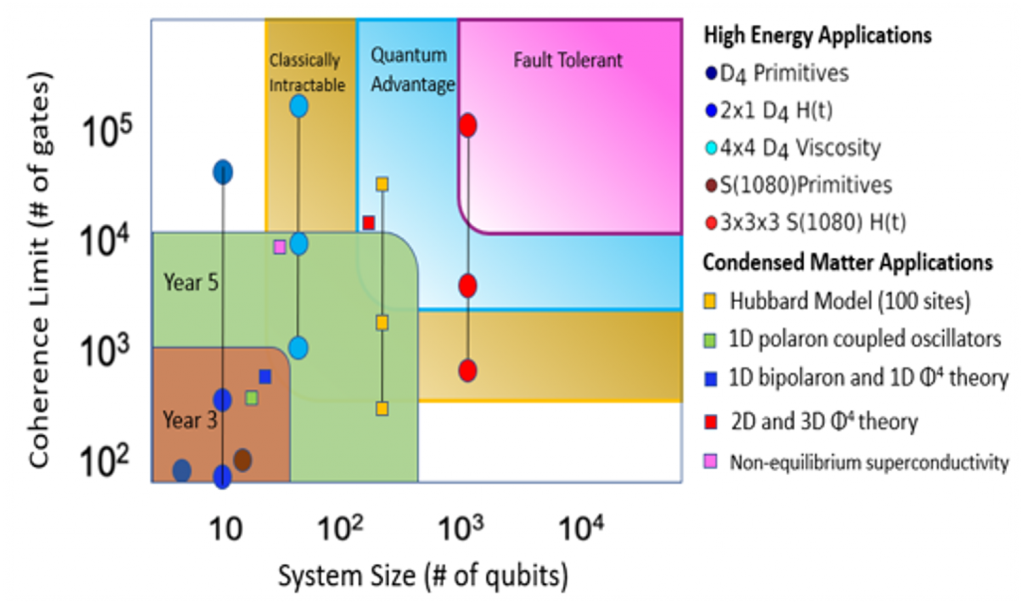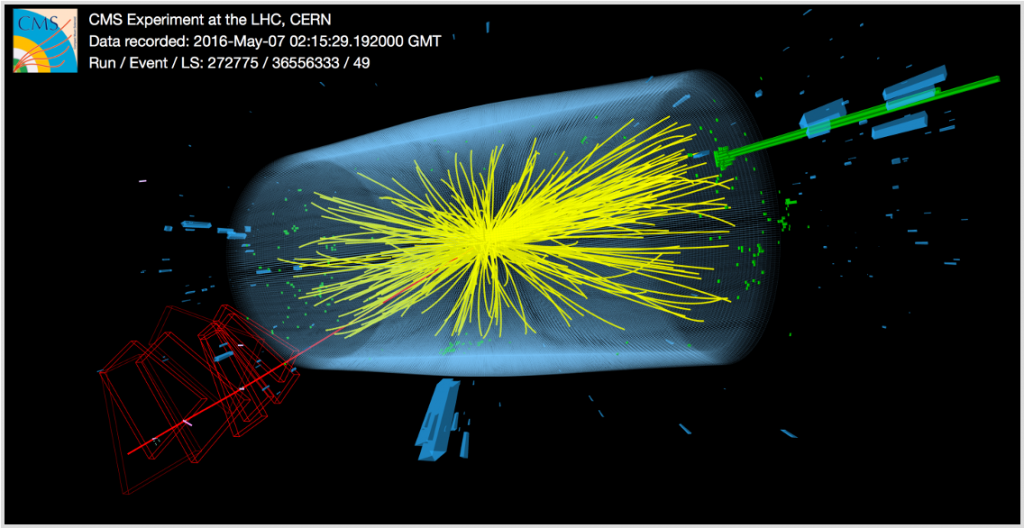Exploring the quantum frontier
Our goals: Investigate and develop quantum algorithms and quantum simulation for:
- Dynamics of theories approximating quantum chromodynamics (QCD) with a goal to simulate LHC physics and the plasma of the early Universe conditions.
- Quantum materials far from equilibirum and intermediate strong electron-phonon superconductivity.
- Development of software libraries that abstract the peculiarities of SRF-based quantum processors.
- Financial modeling
- Magnetic Resonance Imaging data analysis
- What was the viscosity of the Universe when it was young?
- How does the transition quarks – hadrons (e.g. at LHC) happens in “real-time?”
- What are the phases of complex quantum materials?
- What are the non-equilibrium dynamics of highly entangled systems?



Advanced understanding of nature at the most fundamental level to penetrate the basic features of energy, matter, and space-time. The Standard Model (SM) of particle physics captures current understanding. It is the best answer to the question – what are we made of? Many physicists find the SM contrived, demanding a deeper explanation and a more unified picture.
Some of the dominant open questions are:
- How to include gravity?
- Are there new interactions and particles, beyond the known forces and mater?
- What makes up the invisible Dark Matter that comprises 23% of the Universe?
- Can the fundamental interactions be completely unified?
Answering such questions will require computers beyond current capabilities. Breakthroughs in quantum computing will open new paths. The goal is to unite powerful analysis techniques with cutting-edge advances in quantum computation to reach unprecedented levels of precision.
At Fermilab simulations will allow physicists to use quantum computing in quantum chromodynamics (QCD), the theory of strongly interacting quarks and gluons, or in the physics beyond the Standard Model. Fermilab’s expertise in lattice QCD computations will inform and improve quantum simulation. Fermilab theorists aim to explore and further develop connections between quantum science and quantum field theories, or QFTs, which provide the foundation for particle physics studies. QFTs allow theorists to describe and compute phenomena in a vast range of scale, including examples from the theory of quantum electrodynamics, the effective field theories of the strong and weak interactions at low energies, the gauge theories of the Standard Model of particle physics, and possible extensions beyond the Standard Model.

On the experimental front, computer algorithms will aid in reconstructing particle tracks in detectors that produce billions of particle events per second, as in the Large Hadron Collider at CERN. The data center at CERN stores more than 100 petabytes (1015) per year, equivalent to over 3 million Blue-Ray DVD’s. Future quantum computers can recognize patterns better and faster than conventional computers, to correctly identify individual particle trajectories.
